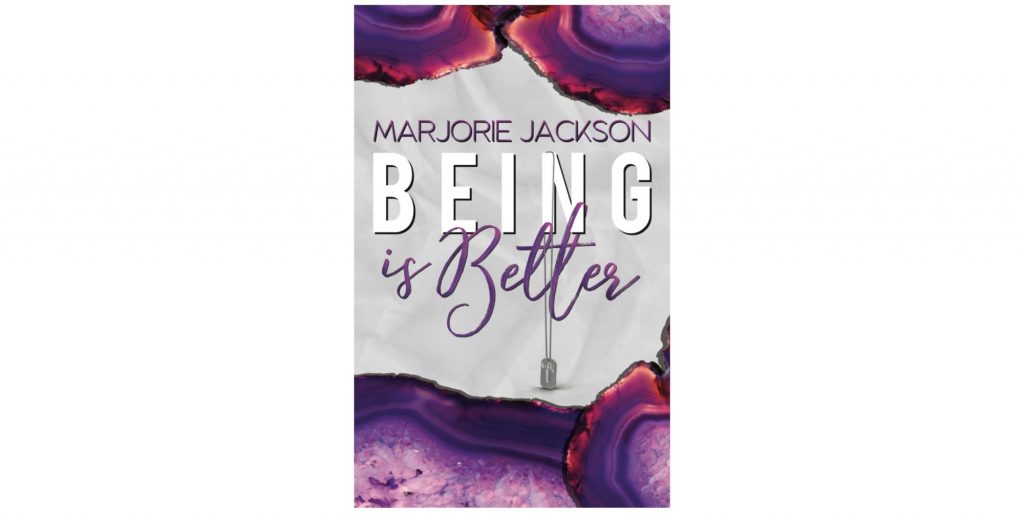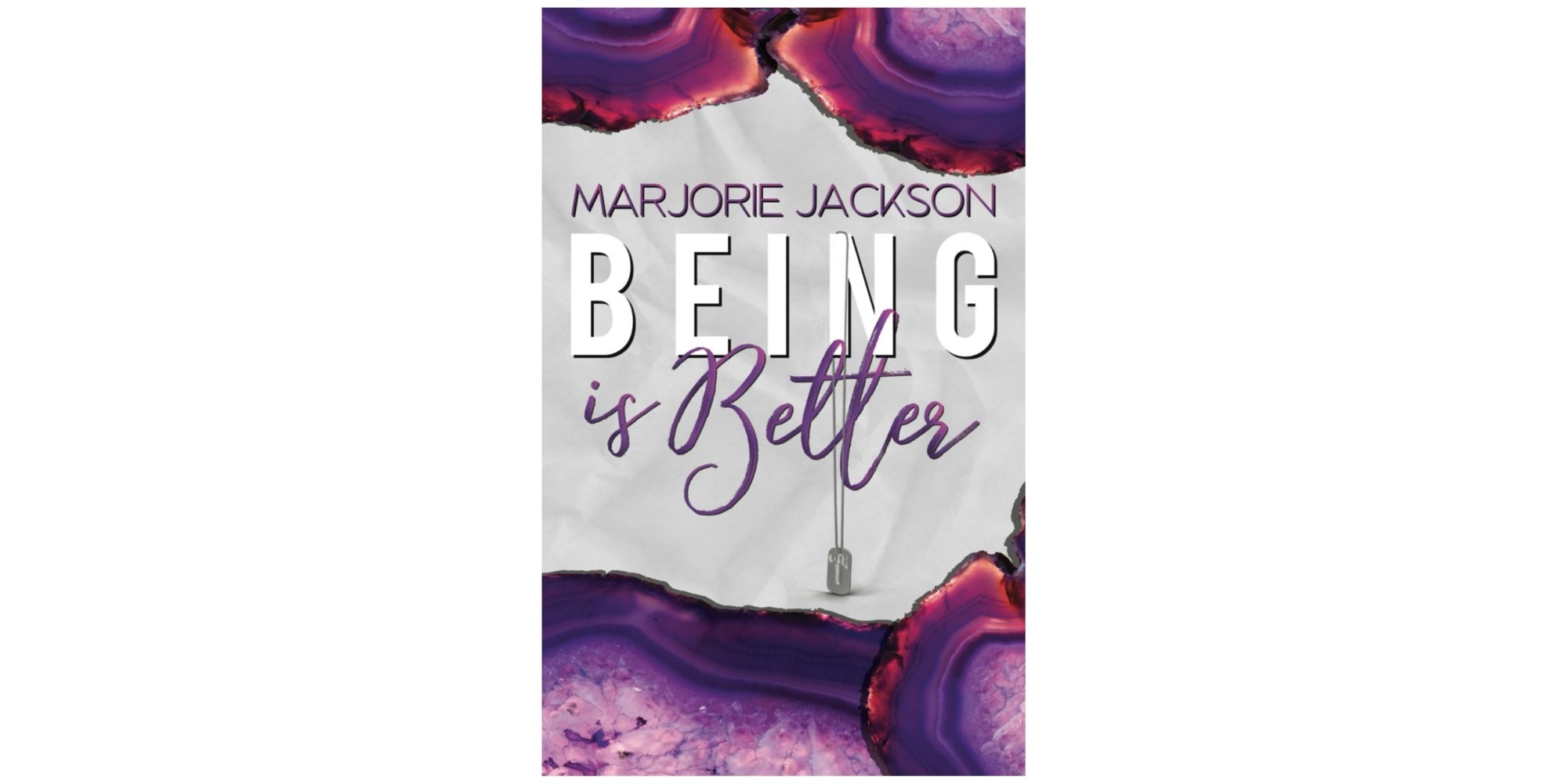We have all been a teenager and are all fully aware that teenage years can feel like walking a tightrope in a storm – they can be chaotic and unpredictable with raging hormones, changing bodies and teenage angst. As a teenager there are lots of changes to navigate but then there are other issues; loneliness can creep in when friendships falter, grief can cast long shadows after loss, and mental health struggles often remain hidden behind forced smiles. Marjorie Jackson’s Being is Better navigates these turbulent emotions with honesty and heart, showing readers that vulnerability can be a bridge to connection rather than a barrier to belonging.
Being is Better is the first instalment in the Better Together duology by Marjorie Jackson. Released in October 2021, this YA novel introduces two fourteen-year-old protagonists who struggle with profound isolation and the hope of unexpected friendship.
Amber and Missy, both 14 years old, live in parallel worlds of solitude. Amber’s life is governed by epilepsy, not the thrashing about seizures that lots of people associate with epilepsy, but absent seizures – silent blackouts with no dramatic convulsions, which create plenty of fear from her classmates who don’t understand her condition. Missy, on the other hand, is trapped in anger and exhaustion after her brother dies in Afghanistan and her mother sinks into depression. Both girls have no real friends, and both are desperate for someone who sees beyond their pain.
Overall, Being is Better is an extremely interesting story and one that will be very relatable for struggling teenage readers. Looking at the very real issues of loneliness and the healing power of positive thinking and true friendships. Told from the perspectives of two very different teenage girls, Amber and Missy, the story is very straightforward, easy to read, relatable, easy to understand and digest, although the medical themes and family problems are quite complex issues… and very real problems.
Amber endures absent seizures, her invisible battle, that make her feel disconnected from reality. Her frustration is superbly captured in a single line: “My condition, epilepsy, is a brain disorder, not a disease. There’s a difference. You catch diseases. No one can ‘catch’ epilepsy.” Through Amber’s quiet strength, readers learn about stigma, resilience and the courage it takes to explain invisible illness to others.
My condition, epilepsy, is a brain disorder, not a disease. There’s a difference. You catch diseases. No one can ‘catch’ epilepsy.
Marjorie Jackson / Being is Better
Missy’s grief is loud and angry. After her brother’s death and her father’s departure, she becomes the reluctant carer for her deeply depressed mother. Missy’s sudden outbursts, rage aimed at anyone who gets too close, are a defence mechanism to shield her from further hurt. This raw portrayal of teenage anger and responsibility offers readers a poignant look at how grief can manifest in unexpected ways and why even the angriest teens need empathy, not judgment.
The novel is structured with alternating chapters from each girl’s point of view. This dual-narrative approach builds anticipation, as readers see the girls grappling separately with fear and fury, only to discover their shared struggles. The writing is and clear and concise, making complex issues of health and mental wellbeing accessible to YA audiences without diluting their seriousness.
At its heart, Being is Better is a testament to the healing power of friendship. When Amber and Missy finally cross paths, they learn that shared vulnerability can forge unbreakable bonds.
With themes of positive thinking, mutual support and understanding, these can be as transformative and healing as any medical treatment. This message resonates deeply for teens who may feel burdened by caregiving roles, chronic illness, or unspoken grief.
The story comes across with plenty of authenticity and emotional impact. It’s a sad, yet uplifting and motivational story of loneliness and friendship.
Being is Better is an essential read for any teenager seeking hope amid hardship. Through Amber and Missy’s different and shared journeys, readers will learn that asking for help is a sign of strength, not weakness, and that sometimes, the best medicine is simply having someone to help share your troubles.
Rating: 5/5
RRP: £12.99 (Paperback) / £5.77 (Kindle)
Available to buy from Amazon here.



